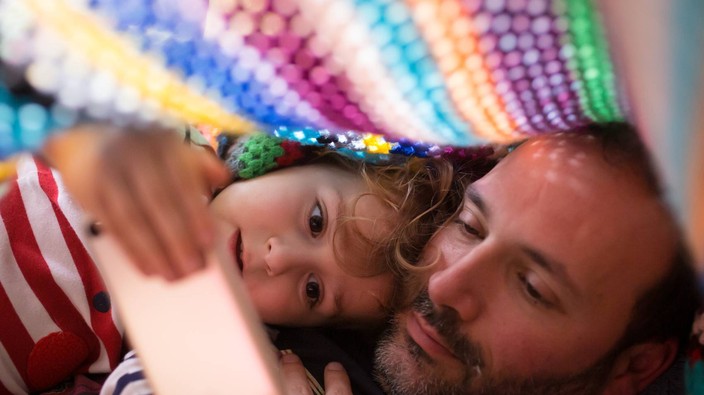almost one in four parents are worried their child may be developmentally delayed but an alarming number are taking their concerns to the internet instead of a doctor, according to a new u.s. poll.
the survey, conducted in january by the university of michigan c.s. mott children’s hospital, found the majority of 779 parents with at least one child under the age of six were confident the appropriate developmental milestones were being achieved. among the 23 per cent of parents who do not feel the same way, however, are a sizeable portion of people who look for answers online.“parents may be unsure whether their child is progressing appropriately for their age and are on track with peers,”
said gary l. freed, co-poll director and mott pediatrician “while most do seek a professional’s advice, some parents may turn to potentially less reliable sources, like friends or online content.”while the nationally representative survey found most concerned parents talk to a healthcare provider (63 per cent) or a childcare provider (24 per cent), one in three have also been looking over the fence, where the grass always looks a little greener. this isn’t helping anyone, researchers say.“when parents seek advice from friends, family or social media, they may hear inaccurate or outdated information about what’s expected during different stages of development,” freed said.
dads were more likely than moms to measure their child against those of friends (41 per cent compared to 28 per cent) or even their child’s own siblings (32 per cent compared to 25 per cent). almost one in five parents with developmental concerns relied solely on the internet or family and friends.the survey also revealed that parents aren’t always the first to suspect something may be amiss with their child, with some informed by family (nine per cent), healthcare workers (nine per cent) or friends (four per cent). “it’s important for parents to keep in mind that child development is a process that unfolds over time,” freed said. “each child is unique. some children might reach certain milestones earlier or later than same-age peers.“this doesn’t necessarily mean that one child is advanced or that another is delayed.”if parents feel their child is falling behind or just have questions about developmental issues — be they physical, social/emotional, cognitive or communication related — they need to talk to a professional, freed said. there are many factors that can influence a child’s development, and the rate they achieve milestones: if a child was born prematurely, for example, progress may be affected.“checking and monitoring developmental milestones can be helpful in detecting delays or problems early and assessing whether children need additional support,” freed said. “for many parents, well child visits are the best time to discuss age appropriate milestones and to learn what to be looking for by the next checkup.”while the internet can be a useful starting point to better understand the stages of child development, it can also be rife with misinformation that may result in unnecessary anguish. “it is natural and expected for parents to scour the internet and social media looking for answers, but that can open a floodgate of information and subsequent anxiety for the 2a.m.-googling-parent,” alok patel, a pediatrician at stanford children’s health,
told cnn.a pediatrician brings years of knowledge and training that can prevent this and provide specific answers for an individual child. “what seems like a credible medical article could actually be one trying to sell you a product or push a political agenda,” patel said. “i have seen children rushed into the emergency department because the internet scared the parents into thinking their children had cancer.“i’d much rather have parents take their serious medical concerns to a pediatrician than the world wide web of anxiety. we’re trained to not only identify and manage medical conditions; we also have the experience to be able to calm and reassure parents.”
dave yasvinski is a writer with healthing.ca
 3 minute read
3 minute read








